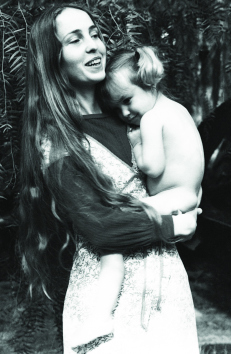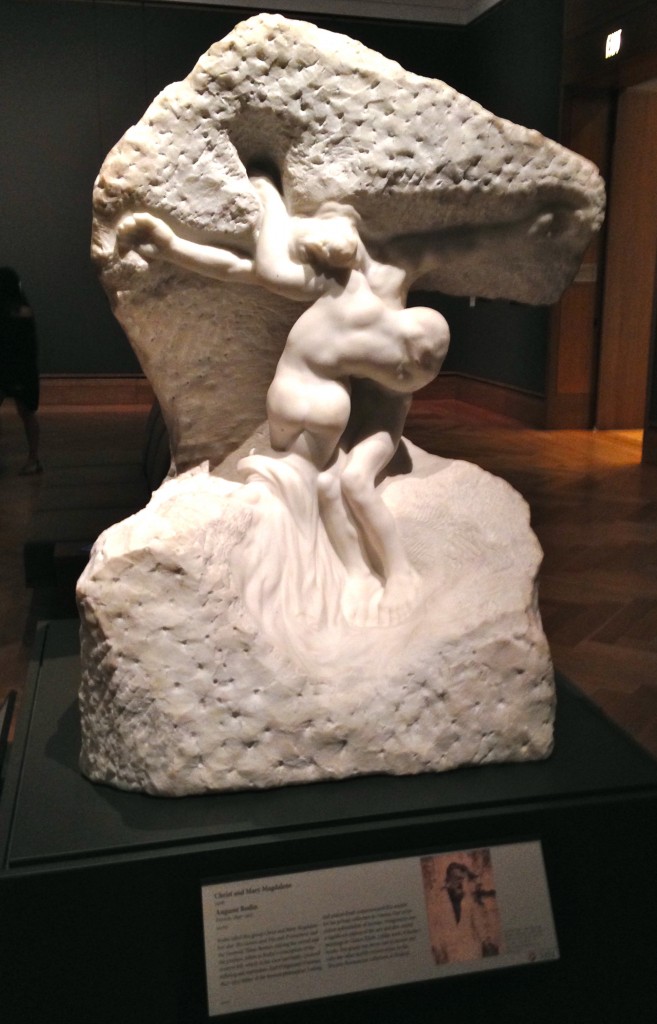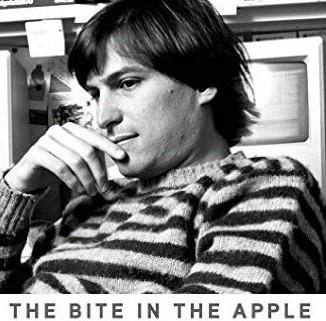This week, Steve Jobs, the movie directed by Danny Boyle and written by Aaron Sorkin, will be released. How will it impact Jobs’ legacy?
Several Steve Jobs allies say the movie portrays him as cruel and inhumane and tried to stop its production. Chrisann Brennan, the mother of Lisa, his first child, witnessed that cruelty. She was marginalized and neglected by Jobs for many years. Last month, she joined me for an intimate Fresh Dialogues interview to share her perspective.
Despite the hardships she endured, Brennan has enormous respect and even forgiveness for Jobs. She says her memoir’s universal message is about the plight of single women and she’d like to see the business world be more family-friendly.
“I’m a modern Mary Magdalene, the truth of who I am was blacked out. Steve fancied himself a Christ figure, but hated women.” Chrisann Brennan
Fergus Nicoll: Whenever a biopic comes out, especially when its subject is not long gone, you better believe there is going to be a noise from those screaming about “Mount Rushmore scale hype” and a counter noise from those complaining that a genius has been traduced. So get ready everybody for Jobs, the Dannie Boyle movie with Michael Fassbender as Steve Jobs, scheduled for November (US release is Oct 9th).
I’ll toss the ball to Alison, because I know you’ve been talking to somebody with a personal interest in this story – that’s an understatement. Tell us first about expectations for the movie.
van Diggelen: It was shown at the Telluride Film Festival to rave reviews. But I did read a Guardian review that said that you have to be an Apple fan to really enjoy it. So take the reviews with a pinch of salt.
I had the opportunity to interview Chrisann Brennan, Steve Jobs’ first love and the mother of his child Lisa Brennan Jobs…they met in high school in 1972 and they had a very passionate affair. She got pregnant and he denied the paternity and she had a very rough life. He was very miserly about looking after her. She talked to me at length about this very painful time in her life and how he treated her, and yet she does respect him in her way.
Clip airs from Fresh Dialogues interview
Chrisann Brennan: I was interviewed for five hours, they told me I was the emotional heart of that movie. I don’t want to judge Steve because he did what he did, it was fabulous… I like the fact that the (movie) spectrum shows we are different people now. We value different things. We will expose these things because we want to have a dialogue in the world about the whole picture…not just the ‘Mount Rushmore picture’ of people who do well.
Alison van Diggelen: So you can contribute that fully faceted perspective?
Chrisann Brennan: Yes, I do feel that.
Alison van Diggelen: You said “I don’t want to paint me as the victim, and Steve as the villain.” Is there an alternate way you’d like to frame it?
Chrisann Brennan: That will continue to evolve. I survived it…I have more than survived it…I survived him…
Alison van Diggelen: And do you feel that is a victory right there?
Chrisann Brennan: I feel it says if you hold onto the truth, it actually starts to amount to something.
Alison van Diggelen: Is there anything you wish you’d done differently?
Chrisann Brennan: Oh, yeah…but I couldn’t have. When I was living with Steve and he was showing me his poetry, I really wish I’d taken it to heart more deeply.
Alison van Diggelen: Was this his Bob Dylan poetry?

Chrisann Brennan: Mm hmm. When I grew up enough to be an adult and understand that 17-year-old, I felt oh. There’s just so much. If we had a chance to talk now, it’d be great…
Alison van Diggelen: What would you ask him?
Chrisann Brennan: I think I would just express some kind of love…
Alison van Diggelen: You would tell him you loved him?
Chrisann Brennan: In some form…
Alison van Diggelen: That’s beautiful…
One last question: what do you feel was Steve’s greatest legacy?
Chrisann Brennan: Yes, he made a technological device that freed people up…but mainly the message is to be who you are. Now a lot of people are running around trying to be like Steve Jobs. They miss the point…it is to individuate enough, to understand what you need to go out and do. He was just a fabulous example of it in so many ways.
Fergus Nicoll: Well that seems, Alison, like an amazingly forgiving person… From what I’ve seen of the movie, this is very much part of the story of the movie. There are some explosive scenes related to this. But it’s always difficult…there have been massive tomes about Steve Jobs, some have been less revelatory than some hoped for, but (Jobs is) a man who appears to tower over Silicon Valley, even in his absence?
Alison van Diggelen: He’s absolutely idolized here and around the world, and in fact a documentary just came out here in the United States: Alex Gibney’s documentary Steve Jobs, the Man in the Machine. Chrisann was interviewed for five hours for that and she talks at length about just how cruel he was to her and yet, she is incredibly forgiving. She has respect for what he’s done, his visionary powers, but she does describe herself as “a modern day Mary Magdalene…Steve saw himself as a Christ figure,” that’s what she wrote to me this week.

Fergus Nicoll: That’s a pretty powerful image…I’m always amazed that we expect the visionary leaders in tech, in industry, in politics to be good guys. Why should that be necessary?
Alison van Diggelen: Well, I think that’s the ideal. What concerns me about the idolization, almost canonization of Steve Jobs, is the fact that young people might think of him as the perfect role model…i.e. the more “jerk-like” they are, the better. And I think that’s a very dangerous role model. I think it’s important that people like Chrisann Brennan speak up to show the contradictions in his life. She wants to get out this universal message about the plight of single mothers and how Steve Jobs made her peripheral, almost invisible and it plays into this bigger question of business attitudes to families and what are our values?
Fergus Nicoll: Alison, who’s the equivalent now…And are there woman poised to achieve such dominance in Silicon Valley?
Alison van Diggelen: The first person who comes to mind is Elon Musk…Females that I would cite are Marissa Mayer, Sheryl Sandberg.
And of course there’s Bill Gates. He’s probably going to be canonized for the second half of his career as a philanthropist, not a tech guy.
Fergus Nicoll: There’s a parallel there with Jimmy Carter, the most famous ex-president probably because of what he’s done…and Bill Gates has done the same: an extraordinary first career and then this amazing philanthropic career with his wife Malinda and their many campaigns….
Do you buy that Silicon Valley is a counterpoint to Wall Street (making giving money away popular)?
Alison van Diggelen: I’m delighted to hear that the message is getting out about the generosity of people in Silicon Valley. It’s so easy to point fingers and say that the wealth isn’t being shared. It is, but I’d say, probably not enough.
On the question of behavior of CEOs, there is growing transparency, thanks to social media, 24/7 news coverage. CEOs can’t get away with what they used to. Steve Jobs, if he was doing what he did to Chrisann Brennan today – denying paternity and saying 10% of the (male) US population could be the father of this child – he just wouldn’t get away with that today. The evidence would be there.
Fergus Nicoll: Alison, thanks so much for bringing in the interview for us on the Steve Jobs story.
Alison van Diggelen: My pleasure indeed. Thank you.




